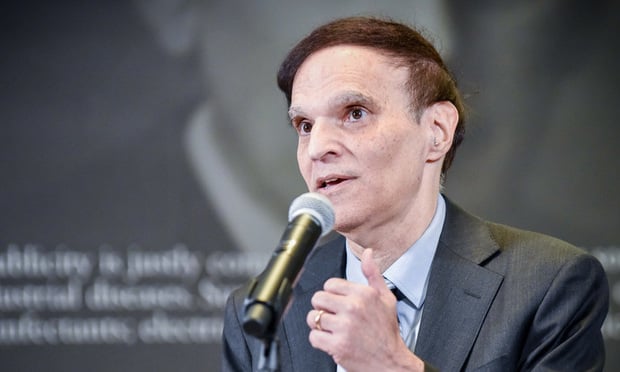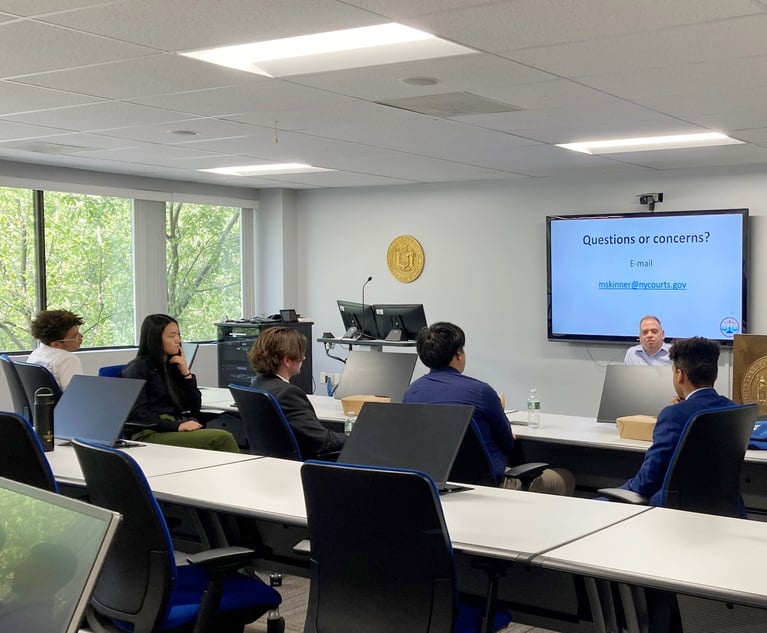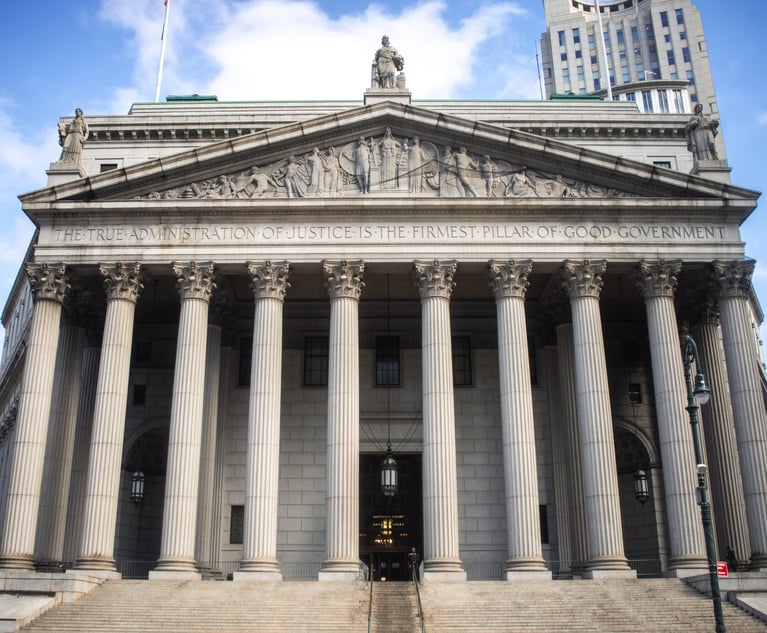The U.S. Court of Appeals for the Second Circuit said that it plans to continue hearing appeals as scheduled this week, as state and federal governments ramped up their efforts to slow the spread of the COVID-19 outbreak.
While the Manhattan-based appeals court would remain open to “fulfill its constitutional and statutory responsibilities,” access to the courthouse would be restricted only to those with official business before the court, Chief Judge Robert Katzmann said in a one-page order posted to the court’s website Monday.
The court had also established a teleconferencing platform for judges and attorneys who prefer to appear remotely, and audio of all arguments would be livestreamed to maintain public access to court proceedings, according to the order.
“For the Second Circuit, we are anticipating being open for business. We’ve got the technological capabilities to make sure our arguments go on as scheduled,” Katzmann said in a phone interview. “We have no plans to shut down for business.”
The comments came as New York City was bracing for the possibility of sustained shutdowns in the face of a global pandemic that on Monday afternoon had tallied nearly 4,300 recorded cases in the U.S.
State trial courts in New York had grinded to a near halt, and as of Monday, Gov. Andrew Cuomo ordered a set of fresh restrictions, including the closing of public schools and a ban on gatherings of 50 people or more in public places.
The new measures in the Second Circuit build on previous guidance that restricted access for those who may have been exposed to the virus. According to the new order, anyone approved to enter the premises would be screened by security staff to ensure they meet health requirements posted at the doors.
Last week, the Second Circuit announced that it would bar entry to people who had recently visited China, Iran, Italy, Japan or South Korea, which have been particularly hard-hit by COVID-19, the illness caused by the novel coronavirus. Lawyers and pro se parties were directed to notify the court if they had come in close contact with someone diagnosed with COVID-19, had been asked to self-quarantine or if they suffer from a compromised immune system.
Meanwhile, U.S. District Chief Judge Colleen McMahon of the Southern District of New York on March 13 ordered a pause to all jury trials in civil and criminal cases set to begin before April 27. All trials underway before Monday would proceed as planned, and existing grand juries would continue their operations, McMahon said.
Criminal defendants who are currently detained would be allowed to petition the judges overseeing their cases for an exception to the order, though the decision of whether to grant the request would ultimately be left to McMahon, after consulting with the assigned judges.
In a letter Sunday, the Federal Defenders of New York said attorneys would seek to adjourn all nonessential conferences and proceedings, while pushing for remote hearings in cases involving detained clients.
The group said it had asked the Manhattan U.S. Attorney’s Office “not to engage in business as usual with respect to new cases,” and would request bail for “high-risk” defendants in Manhattan and Brooklyn federal jails.
Judges in the Southern District, meanwhile, were “strongly encouraged” to conduct court proceedings by phone or video conferencing when possible, and all non-case-related events, including mock trials, CLE events and school visits, were canceled until further notice.
Late Monday, the Southern District further restricted access to authorized government employees, jurors, credentialed press, law enforcement and those ordered to appear by a judge. Victims and their families, as well as family members of the accused would also be allowed to enter the courthouse, though all visitors were first required to pass health screening protocol.
Across the river in Brooklyn, the U.S. District Court for the Eastern District on Monday also postponed all jury trials set to begin prior to April 27, according to an administrative order by Chief Judge Roslynn Mauskopf. In a separate order, Mauskopf suspended naturalization ceremonies for about six weeks.
According to the latest update posted to the Second Circuit’s website, most court employees were working from home. However, a “skeleton staff” would continue to report to the courthouse for work that could not be done remotely.
Filing deadlines would be extended or tolled by 21 days through May 17 to account for disruptions to normal business activity, the appeals court said.
Katzmann said he was keeping a “watching brief” on developments and would make changes to his order as necessary. The Second Circuit remained in close contact with leaders from the district courts, as well as the Administrative Office of the U.S. Courts, which has been publishing guidance for courts responding to the coronavirus crisis.
However, the considerations facing district courts and the Second Circuit varied, and final decision-making would be left to the chief judges of the individual courts.
“We feel that under the circumstances we are as equipped as we can be to deal with this crisis, knowing of course that things change quickly,” Katzmann said.
Read More:
NY State Courts to End ‘Nonessential’ Services in Coronavirus Response
Citing Coronavirus, Advocates Call for Release of Aging and Medically Vulnerable Inmates
SDNY Courthouse Restricts Visitors, 2 Manhattan Family Courtrooms Close, in Responses to Coronavirus
NOT FOR REPRINT
© 2024 ALM Global, LLC, All Rights Reserved. Request academic re-use from www.copyright.com. All other uses, submit a request to [email protected]. For more information visit Asset & Logo Licensing.

 U.S. Court of Appeals for the Second Circuit Chief Judge Robert Katzmann.
U.S. Court of Appeals for the Second Circuit Chief Judge Robert Katzmann.








